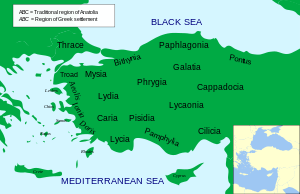278
| Millennium: | 1st millennium |
|---|---|
| Centuries: | |
| Decades: | |
| Years: |
| 278 by topic |
|---|
| Leaders |
| Categories |
| Gregorian calendar | 278 CCLXXVIII |
| Ab urbe condita | 1031 |
| Assyrian calendar | 5028 |
| Balinese saka calendar | 199–200 |
| Bengali calendar | −315 |
| Berber calendar | 1228 |
| Buddhist calendar | 822 |
| Burmese calendar | −360 |
| Byzantine calendar | 5786–5787 |
| Chinese calendar | 丁酉年 (Fire Rooster) 2975 or 2768 — to — 戊戌年 (Earth Dog) 2976 or 2769 |
| Coptic calendar | −6 – −5 |
| Discordian calendar | 1444 |
| Ethiopian calendar | 270–271 |
| Hebrew calendar | 4038–4039 |
| Hindu calendars | |
| - Vikram Samvat | 334–335 |
| - Shaka Samvat | 199–200 |
| - Kali Yuga | 3378–3379 |
| Holocene calendar | 10278 |
| Iranian calendar | 344 BP – 343 BP |
| Islamic calendar | 355 BH – 354 BH |
| Javanese calendar | 157–158 |
| Julian calendar | 278 CCLXXVIII |
| Korean calendar | 2611 |
| Minguo calendar | 1634 before ROC 民前1634年 |
| Nanakshahi calendar | −1190 |
| Seleucid era | 589/590 AG |
| Thai solar calendar | 820–821 |
| Tibetan calendar | 阴火鸡年 (female Fire-Rooster) 404 or 23 or −749 — to — 阳土狗年 (male Earth-Dog) 405 or 24 or −748 |

Year 278 (CCLXXVIII) was a common year starting on Tuesday (link will display the full calendar) of the Julian calendar. At the time, it was known as the Year of the Consulship of Probus and Lupus (or, less frequently, year 1031 Ab urbe condita). The denomination 278 for this year has been used since the early medieval period, when the Anno Domini calendar era became the prevalent method in Europe for naming years.
Events
By place
Roman Empire
- Emperor Probus defeats the Alamanni, advancing through the Neckar Valley. He expels the Franks from Gaul, and reorganizes the Roman defenses on the Rhine.
- Probus resettles the Germanic tribes in the devastated provinces of the Roman Empire. He adopts the titles of Gothicus Maximus and Germanicus Maximus.
- Piracy along the coast of Lycia et Pamphylia: The Romans besiege the city of Cremna (Pisidia) and kill the Isaurian robber Lydius.
Births
- Sima Yu, Chinese crown prince of the Jin Dynasty (d. 300)
Deaths
- December 27 – Yang Hu (or Shuzi), Chinese general and politician (b. 221)[1]
- Cao Yu (or Pengzu), Chinese prince of the Cao Wei state (b. 211)
- Fu Xuan (or Xiuyi), Chinese historian, poet and politician (b. 217)
- Xi Zheng (or Lingxian), Chinese essayist, poet and politician
- Yang Huiyu, Chinese empress of the Jin Dynasty (b. 214)
References
- ^ Goodman, Howard L. (2010). Xun xu and the politics of precision in Third-century AD China. Sinica Leidensia. Leiden: Brill. p. 122. ISBN 978-90-04-18337-7. Retrieved November 5, 2024.
